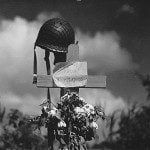
Some Significant Twenty-First Century Translations
The Qur’an (2004)
M.A.S. Abdel-Haleem
Published in paperback in the Oxford World Classics series, this translation has very been well received and is, I think, growing in acceptance. It’s also the one that I currently use when I teach courses on the Qur’an in English. (For my own writing, I use the Arabic text and provide my own translations.) It has some occasional eccentricities of which I disapprove, but it’s quite clear and readable.
One of the aspects that I like is his use of the term God, instead of the Arabic Allah. Translators divide on this issue, but it seems important to me not to give the impression that Muslims worship a different being than do Christians and Jews. Allah isn’t a proper name, comparable to Zeus or Jupiter. It’s the Arabic equivalent of the English God, used by Arabic-speaking Jews and Christians as well as by Muslims, and it’s closely related, in fact, to the Hebrew word Elohim. (The term’s –im ending is actually, intriguingly, a masculine plural suffix. If it’s detached, the similarity between Eloh and Allah, which is a contraction of the words al-ilah [“the God”], becomes fairly clear.)
The Quran: A Reformist Translation (2007)
Edip Yuksel, Layth Saleh al-Shaiban, and Martha Schulte-Nafeh.
This version attempts to offer a “non-sexist” interpretation of the text.
The Study Quran: A New Translation and Commentary (2015)
Seyyed Hossein Nasr, editor-in-chief.
Professor Nasr, an Iranian educated in physics at the Massachusetts Institute of Technology and the holder of a doctorate in the history of science from Harvard, is one of the most eminent Muslim thinkers of the modern world (though he’s in exile from his native country, where he was too closely associated with the late Shah to be acceptable to the current revolutionary government there). This is a landmark project, published by HarperOne, with verse-by-verse commentaries and essays by both Shi‘ite and Sunni scholars, very much on the model of the best modern Protestant and Catholic study Bibles.
I wrote the notes from which I’ve a drawn a portion above at the request of a committee in Salt Lake City back in January 2017. At that time, I had not yet met Safi Kaskas, nor become aware of his interesting translation of the Qur’an. But it’s definitely worthy of notice here:
The Qur’an – with References to the Bible: A Contemporary Understanding
His notable translation is also published on its own, but the version with which I’m familiar is furnished with cross references, provided by David Hungerford, to the Bible. That makes for a remarkable experience for Christian readers.
Posted from Phoenix, Arizona












